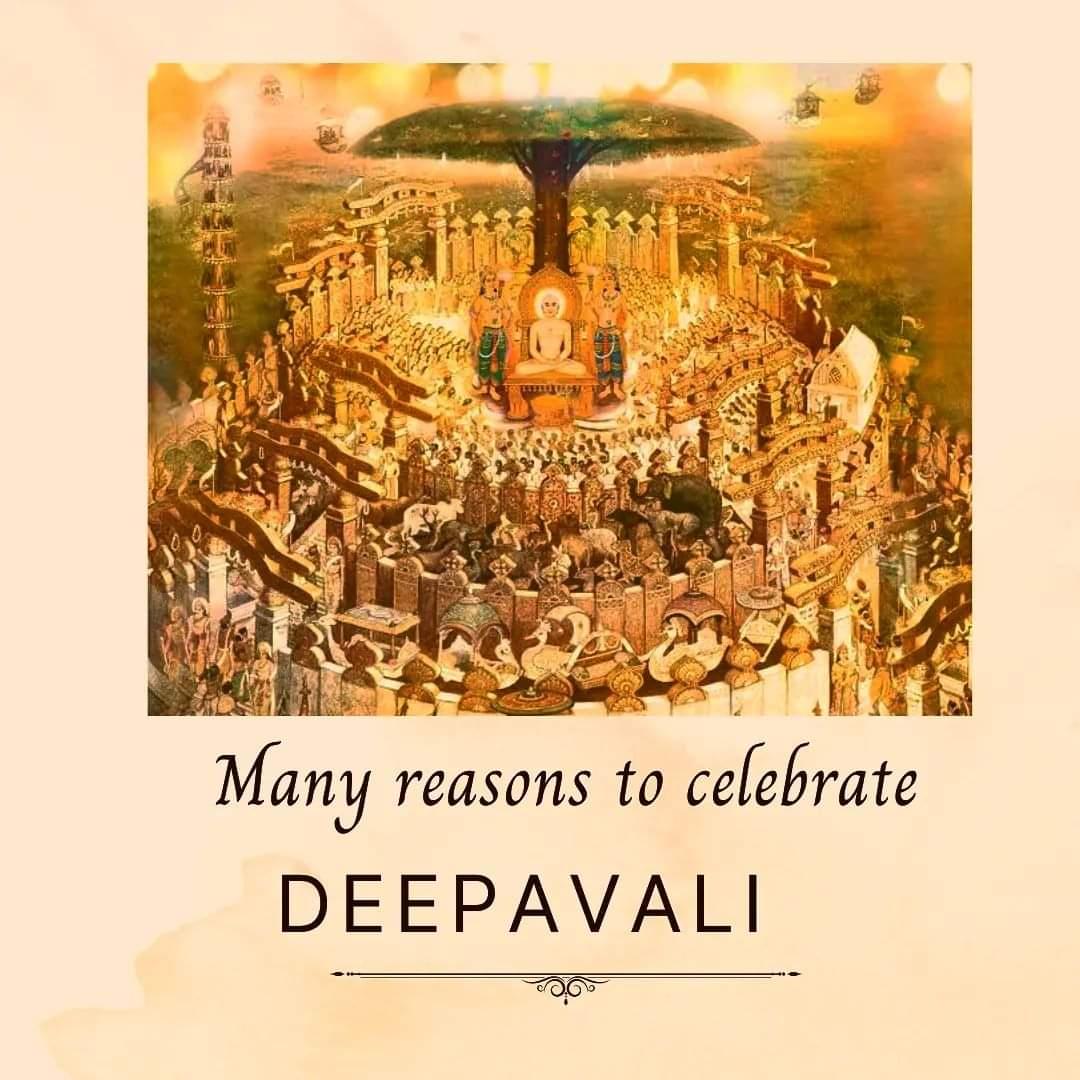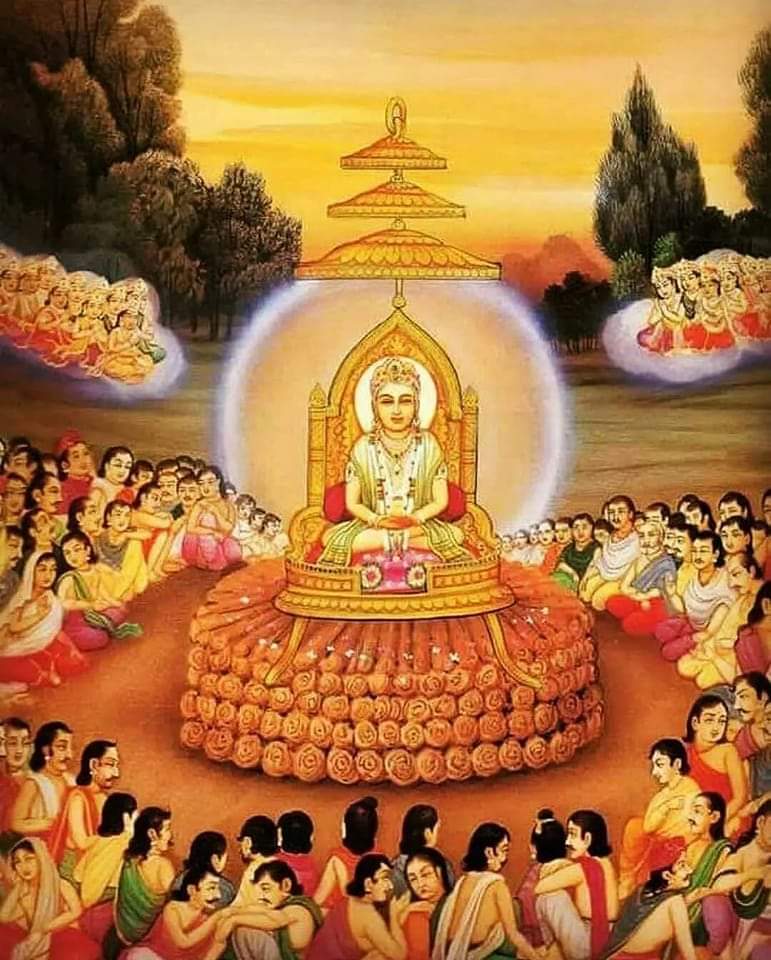
Happy Spiritual Diwali/Dipawali to you all.
But do you know why Jains celebrate Dipawali ?
Read rhe thread.
But do you know why Jains celebrate Dipawali ?
Read rhe thread.

Diwali is one of the most popular festivals in india. For Jains it is a very important occasion. It is a festival of glory and achievement of Bhagwan Mahavira who attained nirvana on this day.
A brief history of diwali in jainism:
#Diwali was known as Deepalika- the Festival of Lights. Deepak is a symbol of light of abolishing the darkness of ignorance.
#Diwali was known as Deepalika- the Festival of Lights. Deepak is a symbol of light of abolishing the darkness of ignorance.
#DhanTeras was known as #Dhanya_Teras in olden days. Before his nirvana,Bhagwan Mahavira started giving his last sermons on this day. Thus the day was known as Dhanya. Now it is called as Dhan as too much importance is attached to wealth. 

#KaliChaudas
Bhagwan spoke continuously for 48 hours. His last sermons are recorded in one of our Aagams called the uttaradhyana sutra.
Bhagwan spoke continuously for 48 hours. His last sermons are recorded in one of our Aagams called the uttaradhyana sutra.
#Diwali
Bhagwan left this world and attained Nirvana at Pavapuri. The light was gone forever and the whole world was enveloped in pitch darkness. Gods dispelled it with bright gems and humans lit earthen lamps. Lamps are lit to symbolize the dispelling of ignorance.
Bhagwan left this world and attained Nirvana at Pavapuri. The light was gone forever and the whole world was enveloped in pitch darkness. Gods dispelled it with bright gems and humans lit earthen lamps. Lamps are lit to symbolize the dispelling of ignorance.

#Padva / #NewYear
Gautam swami, the chief disciple of Bhagwan Mahavira attained keval gyana on this day.
Gautam swami, the chief disciple of Bhagwan Mahavira attained keval gyana on this day.

#BhaiDooj
After Bhagwan's nirvana his brother king Nandivardhan was inconsolable due to grief. His sister, Sudershana called him to her house and comforted by giving him religious knowledge.
After Bhagwan's nirvana his brother king Nandivardhan was inconsolable due to grief. His sister, Sudershana called him to her house and comforted by giving him religious knowledge.
Thus the traditions found their way in today's world. But let's not forget the real significance of celebrating Diwali. 'Ahimsa paramo dharma' was Bhagwan's teaching which is at the very heart of Jainism.
#Jainism
#Jainism
• • •
Missing some Tweet in this thread? You can try to
force a refresh







